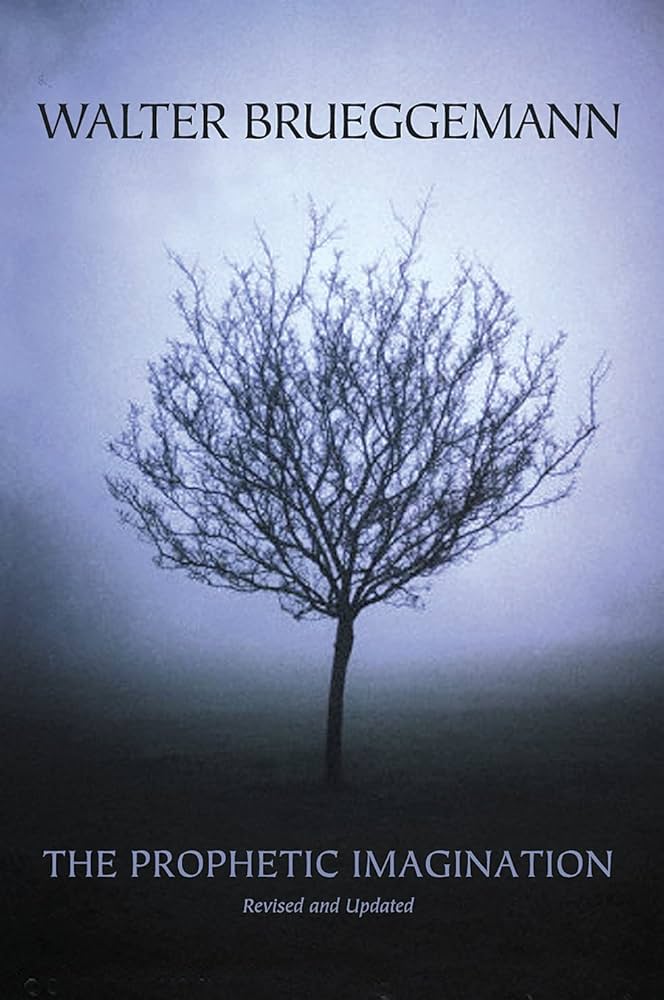I met him only a handful of times, long after his books became standard fare in both mainline and evangelical seminaries. What stood out for me was his character — he was humble and kind and generous with his time — rare qualities among those of his renown. He was also incisive, candid, and courageous, refusing to soften his message to alleviate discomfort or offense.
I will never forget the time he gave a lecture to a crowd of church goers who had eagerly showed up to hear him speak. With skillful precision and insight, he laid bare how the church in North America had capitulated to the dominant culture’s imperialist tendencies and quest for power. At the end of the lecture, the crowd responded with thunderous applause and a standing ovation. Had they not heard his indictment, I wondered? Were his words not like a sword to the heart? But I would learn that he was one of the few people who could offer public critique in a way that was received by his listeners as the act of love and earnestness for the church with which it was offered.
I’m talking, of course, about Walter Brueggeman. On June 5, 2025, Brueggemann took his final breath and went home to be with the Lord. I watched the livestream of the funeral at my kitchen table, joining countless others in person and online to pay final respects to a pastor, teacher, and scholar who had such a profound influence on the church, and also on my own study of the Bible and Christian faith. Based on the countless tributes on social media, I know I am not alone.

Brueggemann is best known for his 1978 book, The Prophetic Imagination. But if you asked around among biblical scholars, pastors, and lay persons, they might also mention his seminal work on the Psalms, his Old Testament theology, his interest not just in what texts say but what they do, or his volumes of collected sermons and prayers. He was a biblical scholar of and for the church, awakening the church to her own idolatries and calling her back to covenanted faithfulness and prophetic hope.
Reflecting on Brueggemann’s contributions over the last couple of months, I’m struck by the gift that his body of thought is to the church in this particular historical moment. I think it’s fair to say that the church is in a state of crisis — not only because of declining numbers and diminishing percentages of young people going to church. But also because Christian Nationalism has championed, even normalized, theological distortions and divisiveness that is fundamentally in opposition to the aims of the gospel.
All of this has left many Christians confused, paralyzed, and uncertain about what it means to follow Jesus or be faithful disciples. What do we do when those we have entrusted with power carry out unfathomable cruelty and injustice and claim to do it in God’s name? How do we respond to these unsettling realities?

Not surprisingly, Brueggemann has a lot to say that might be helpful. One might point to, for instance, his sharp analysis of the complicity of the church in the values of the empire or his description of prophetic ministry as not only critiquing the dominant construal of reality, but also imagining alternative possibilities for shaping communal life. Or one might think of Brueggemann’s insistence that God is a real and active presence who is deeply invested and committed to his world even if we can’t always see it. A God who weeps over the cries of the oppressed, who has compassion on those who suffer, whose anger burns against those who perpetuate injustice, whose steadfast love and covenant fidelity never ceases.
One might note Brueggemann’s understanding that Christian faithfulness means trusting God enough that you are free to love your neighbor. Or point to his conviction that hope is a daring act of resistance against oppressive societal forces. To hope is to relinquish the dominant world of consumerism and nationalism, even lament that world, in order to receive the world that God longs to give us. A new reality, a new creation, characterized by God’s generous rule, peace, and justice.
Over the next five Sundays, I hope to share some of the themes in Brueggemann’s work that I have found particularly wise and insightful for understanding and responding to our current moment. But I don’t want to do this alone. As such, I am appealing to the RJ community and inviting you also to share in the comments over these Sundays in August, those quotes, ideas, themes in Brueggemann’s work that you have found particularly impactful, that have shaped your understanding of God or the Christian faith or lent insight into the challenges that the church is facing today.
My hope, in this series of blogposts, is not only to honor Brueggemann’s legacy, but also, using Brueggemann’s work, to brainstorm together what we as the church can do in this moment. What does it look like to live faithfully as followers of Christ today? Let’s together engage in some Brueggemann-style holy and subversive prophetic imagination!


18 Responses
This is both alarming and hopeful. It meshes well with Debra’s piece on mature hope yesterday. Thank you both. I find myself increasingly anticipating the outcome that a God of justice might not only allow but (pre)ordain by way of creative principle. An idolatrous empire must ultimately fall and a complicit church likewise be remade. How and when remains to be seen. I see yard signs proclaiming, “God’s Got This” and “Pray for our Nation.” Be careful what you pray for. As Walter Brueggemann rightly points out, this moment has been in the making for years. CS Lewis also warned that demonic strategy was deviously effective. The best strategy for attack is to grant them prosperity, pride, and power, then watch them self-destruct.
Thanks for your reflections, RZ. It is striking that there have been clear prophetic voices warning us of this moment we now find ourselves in. Might it be we now have ears to hear?
Amanda, I am so looking forward to these Sunday meditations on Brueggemann’s legacy which, I believe, will turn out to be a guide for the church in the tumultuous years to come.
Thanks Len!
Earlier this week, I listened to an On Being with Krista Tippett podcast: “Walter Brueggemann, In Memoriam.” Although the interview was recorded in 2011, it could have been yesterday – the issues are timeless.
I had heard of Brueggemann, but have been unfamiliar with his work and found the podcast a fascinating introduction, inspiring me to want to learn more. I recommend it and also look forward to this series – thank you!
Thanks for highlighting the Tippett podcast. I will definitely take a listen this week. If you are interested, Byron Borger of Hearts and Minds bookstore put together a great annotated bibliography of some of Brueggemann’s best known works. Some are written for biblical scholars but a good many are for lay people. It’s worth checking it out: https://www.heartsandmindsbooks.com/2023/09/a-partial-readers-guide-to-some-of-the-many-books-of-dr-walter-brueggemann-on-sale-now-at-hearts-minds/
Two of my most treasured devotional books are two prayer books by Walter Brueggemann – Awed to Heaven, Rooted in Earth (Augsburg Fortress, 2003) and Prayers for a Privileged People (Abingdon Press, 2008). These prayers have blessed me and others – I highly recommend them.
Thanks for mentioning these prayer books, Dan. I too have found his prayers to be a blessing. They reflect well both the reality that the world suffers under the weight of sin yet the hope we have because God is a real and active agent in the world. I so appreciate the model that Brueggemann has provided for holding together both lament and hope.
I’m looking forward to this series. Thanks Amanda. Per your request for our own Brueggemann favorites, I still find this Christian Century essay by WB in 1999 one of the most spiritually impactful pieces I have ever read: The Liturgy of Abundance, The Myth of Scarcity.
I am going to have to look that up. I don’t think I’ve read that essay before although the themes of abundance and scarcity certainly find their way into other works of Brueggemanns. Thanks for the reference!!
Thank you so much for your investment toward unpacking some of Breuggemann’s writing through RJ. A friend wanted me to read/study our way through Genesis and now we’re into Exodus, lead by Walter Breuggemann and Rabbi Robert Alter’s Five Books of Moses. This combination has of scholarship has opened up the scriptures toward new understanding of “Empire” for today. Breuggeman’s “How to read the Bible on homosexuality” has been a refresher on how to interpret scripture; I’m especially thankful for his distinction: “The Gospel is not to be confused with the Bible.” Really looking forward to your series.
I too have profited from Breuggemann’s commentary on Genesis!
Me too! Especially his reading of Genesis 1 as an overture of praise to God that sets the tone for the story of God’s life with Israel that follows. So good!
Thanks Louis! So glad to hear how Brueggemann’s work has been helpful for you. His distinction between the gospel and the Bible really challenges a tendency toward bibliolatry and the worship of the word rather than the Word.
One of my favorite authors and commentators. I often found that conservative biblical commentators (with whom I have a theological affinity) spent so much time proving that what the text said was true that they often neglected what it means. Brueggemann was one of those who focused on the meaning of the text. I didn’t always agree with his historical conclusions, but I sure appreciated his interpretations. He refused to take the shock out of the text.
He certainly did encourage his readers to read the biblical text more closely and take seriously the parts of Scripture that don’t fit so neatly into our systematized theologies of God. I’m also impressed that he seemed to appeal to conservative and more progressive commentators of Scripture alike – I suspect that was largely because he took the biblical text so seriously.
I was a seminary student of Dr. B’s in the very late 1980s. The combination of his passion, textual integrity, and creativity have had profound influence on my ministry. It’s nearly impossible to imagine functioning in 21st century ministry without his inspiration. I look forward to your reflective engagement with his prophetic passion.
Thanks for sharing, Todd. I resonate with your comments. It’s nearly impossible to imagine being a biblical interpreter without the insights of Brueggemann.